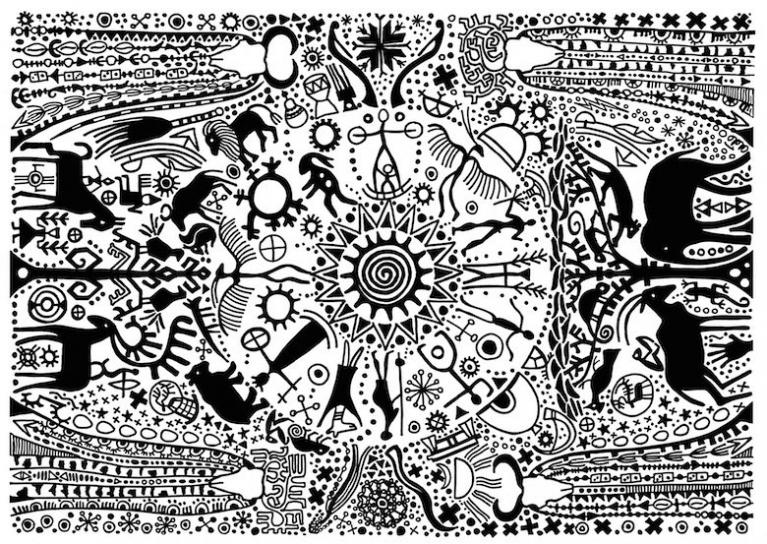Latest Resources

22 January 2021
Tanzania cancels GMO trials again: Urgent need to uphold ban, disrupt false solutions and neo-col...
In a totally unexpected move, the newly appointed Tanzania Agricultural Minister, Prof Adolf Mkenda, in mid-January 2021 announced the cancellation of research trials involving genetically modified organisms (GMOs) in the country and the decision to put in place extra biosafety scrutiny of imported genetically modified (GM) seed. The decision was taken by the Minister in […]

9 October 2020
Struggle for recognition of traditional land, territories and seed in Brazil
(Por favor, clique aqui para Português) In recent weeks, a wave of solidarity from many parts of Brazil and from several countries around the world has reached southern Minas Gerais, in support of the resistance of the 450 farming families, who have organised and lived at camp “Quilombo Campo Grande” over the past 22 years. […]

2 September 2020
Push back against risky and unsafe RNAi GM cassava cultivation in Kenya
An unproven genetically modified (GM) RNAi cassava variety is yet another staple food crop, after maize and banana, on the biotech industry’s agenda for commercial cultivation in Kenya. The brazen lack of safety tests contained in the Kenya Agricultural and Livestock Research Organisation’s (KARLO’s) application for cultivation, and disregard for adherence to biosafety best practise […]

21 July 2020
Reflections midway through 2020: The need for solidarity and global rules for rooted change
ACB’s Executive Director Mariam Mayet looks back at the first half of the year We are mired in a world shattering pandemic of unprecedented magnitude and virulence. The architecture of global economic, environmental, human rights and political governance institutions and rules established in the 20th century are in the process of atrophying. The crisis is […]

20 July 2020
Corporate capture of seed Is jeopardising farmers sovereignty
In a film by Rosa-Luxemburg-Stiftung, ACB research and advocacy officer Sabrina Masinjila talks about the corporate capture of seeds and how laws favour hybrid seeds and not farmers who care for indigenous seeds. Watch here: https://youtu.be/kEqKDLv65dc

15 July 2020
Small scale farming organic African herbs and crops
Uncle Wiz is a shining example of a thriving small scale farming and food distribution business that not only farms without chemicals but also focuses on and promotes indigenous food crops. Owners Wisdom and Mpumi Edward live in south Johannesburg and farm on land in Vanderbijlpark. Not only do they grow many indigenous African crops […]

9 July 2020
COVID-19: Food distribution and health support to informal settlements
Click here to read about the Ivory Park #COVID-19 Campaign relief initiative The Ubuntu Project COVID-19 SA lockdown regulations put strain on the livelihoods of vulnerable communities, and loss of income meant many people were unable to buy food. In the early stage of level 5 lockdown, families and small-scale farmers were cut off from […]

5 June 2020
Commentary submitted to FAO discussion on the AFCFTA as it relates to food and agriculture
On 2 June, the African Centre for Biodiversity (ACB) submitted commentary on the African Continental Free Trade Area (AFCFTA) as it relates to food and agriculture, to a discussion hosted by the Food and Agriculture Organisation of the United Nations (FAO). Our concerns centred around three areas: the kind of food systems that in its […]

8 May 2020
Towards a democratised and recalibrated food system in South Africa
ACB’S Stephen Greenberg’s op-ed urging for a shift to localisation and agroecology The Covid-19 crisis has exposed the stark inequalities that persist in our society. Vast disparities in access to health care, food, shelter, personal safety, water, transport and communications have been laid bare. Aside from imposing a lockdown, the South African government has been […]

20 March 2020
The Monoculture effect and COVID-19
An ACB statement on Human Rights Day, 21 March The COVID-19 outbreak illustrates the complex interactions between deforestation, reduced biological diversity, ecosystem destruction, and human health and safety, in large part driven by the globalised agricultural and food system. Further, with the threats posed by climate change, we can expect greater exposure to existing and […]
